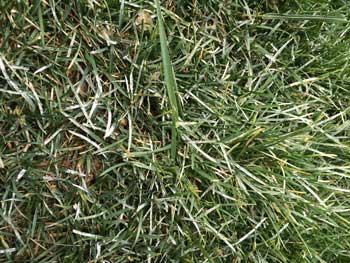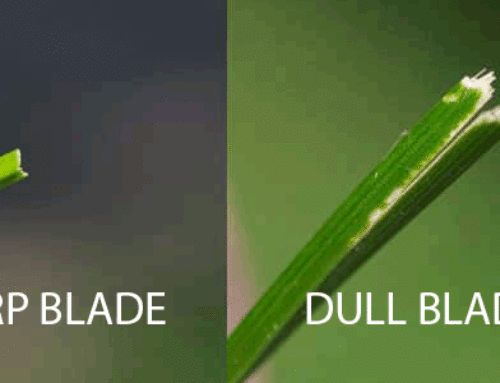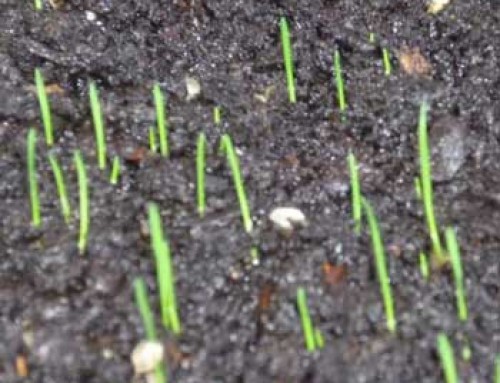If areas of your lawn look like they are covered with white powder or worse, white paint, you have powdery mildew.? Its a very common disease that thrives in cool, wet conditions in the winter and spring.
Powdery mildew is most common and most damaging in areas with heavy shade and poor air circulation. Some cultivars of bluegrass and ryegrass are extremely susceptible, but no kind of grass is totally immune. In severe cases, turf can be severely thinned or outright killed.
Light cases of powdery mildew recover by themselves with the onset of warmer weather and longer daylight hours. The health of the turf can be improved by mowing affected areas every two or three days at a height of three inches or higher to remove the infected leaves. This practice also improves air circulation and light penetration in the turf canopy. Removing grass clippings can also help, and its critical if the grass was tall before it was mowed. Once symptoms dissipate the special mowing is no longer needed. This is usually a matter of weeks, not months.
Fungicides can be applied to control powdery mildew on a temporary basis, but changes in the growing conditions and the genetics of the turf are fundamental to long-term control.
How to provide long-term powdery mildew control:
- Increase air circulation by removing fences and hedges
- Add more sunlight by removing/raising canopies or thinning trees
- Plant shade AND powdery mildew resistant turf, such as:?tall fescue, creeping red fescue, bluegrass and ryegrass.. Genetics play a significant role in turf susceptibility.
- Landscape the affected areas using plants that are better suited to shade and poor air circulation: hastas, vinca minor, violets, columbines, bleeding hearts, astibles, lilies of the valley, and hellibornes. There are dozens of annuals and perennials that can convert a problem area into a favorite place.
Fungicide active ingredients that provide 14?28 day control powdery mildew include Myclobutanil, Triadimefon, and Propiconazole.
Call Martz Bros. Lawn & Tree Care at (913)789-9333 or contact us online?for a fungicide treatment or with any questions you may have.





